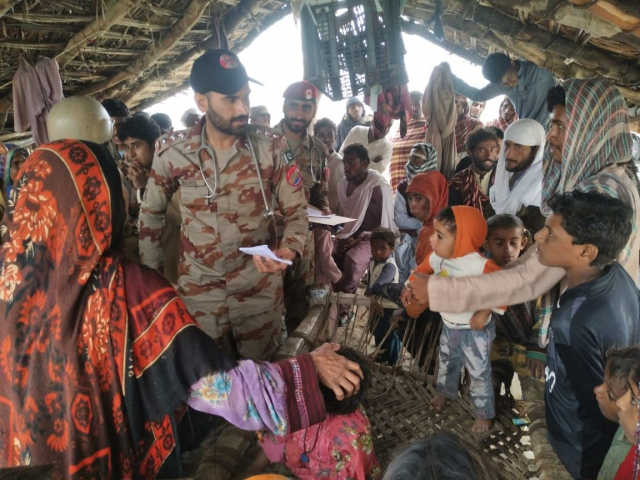A reality that everyone used to call a hoax and a conspiracy theory has now come to life in the worst way possible. Catastrophic wildfires, earthquakes, tsunamis and floods have hit the world. A country like Pakistan contributes merely one per cent to the global carbon emissions, and on the other hand, Europe and Northern America contribute the most. Yet, Pakistan is the worst affected country by the aftermaths of what humans have done to the world due to its geographical location, making it very sensitive to climate change. Pakistan is situated in an area of the world subjected to the effects of two major weather systems. One can induce high temperatures and drought, like the March heatwave, while the other provides monster monsoon rains.
The devastating floods in Pakistan serve as a wake-up call to the rest of the globe about the dangers of climate change. A sense of injustice is keenly felt in the country. More than 1,100 people have died, and millions have been affected by the floods in Pakistan. One-third of Pakistan is currently underwater, which has exceeded every threshold and norm we’ve seen in the past. Not only that, Pakistan may face a $2.24 billion annual average loss due to natural disasters. The provinces of Punjab, Sindh, Balochistan and Khyber Pakhtunkhwa have been the most affected, and most of the people killed were women and children.
Broken hearts, teary eyes and loud cries are heard and seen as floods wreak havoc in Sindh, Balochistan, Nowshera, Swat and other parts in the Northern part of the country. The flood water swept away many people’s dreams; many cries and shrieks were silenced, innocent and weak lives were separated from their loved ones. Many homes were broken, and soles were consumed by the unmerciful flood waters. No one could have done anything; all they could do was stand and watch.
However, efforts all around are being made by many to simply reduce the damage done by the monster monsoon in Pakistan since reversing the damages altogether is practically impossible. The Pakistan forces, government, foreign friends and the United Nations (UN) are attempting to reduce the risks of these sudden floods by installing early-warning systems and protective infrastructures in place. Rescue operations are being carried out for the affected population. The Pakistan army, like always, is carrying out these operations and is helping those who lost everything during this time. Food, clothes, shelter and other essentials are being arranged regularly. Rescue operations are not only saving human beings but animals as well. Foreign countries, NGOs and international organisations are also sending in huge amounts of funding and donations to help out.
Still, many questions arise: is the aid really reaching the deserving, helpless people? And even if it is, is it enough? While I was in Charsada, I observed that the army and many private organisations were distributing bedding and medication that the residents needed. According to many people, the aid is reaching some, and they are thankful, but some are not getting the help they need as ID cards are required by some agencies distributing aid. Unfortunately, because many local people lost all their documentation in the flood, they were not able to receive the aid or relief packages they so needed. Another issue arising is the repetition of aid each family gets. Families repeatedly send different family members of the family to get multiple bags of rations. Furthermore, many say that the aid is temporary help. Their means of income – the fields they used to grow crops in – have been completely destroyed. Hence, this is temporary help and the worst is yet to stay.
All these funds and donations might help people survive for the time being but it won’t be able to bring back people’s homes which they made with all their hard work, or their livelihoods. The only hope the people of Pakistan have is that God stops the chain of unprecedented rains in the country, so their misery can end here and they can move forward to build a new life.



COMMENTS
Comments are moderated and generally will be posted if they are on-topic and not abusive.
For more information, please see our Comments FAQ